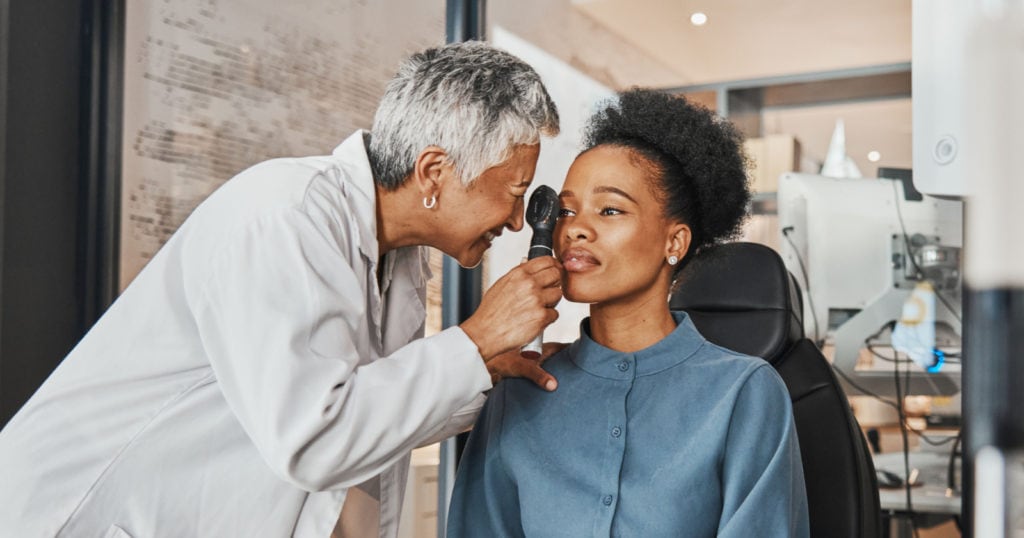Top-Rated Ophthalmologist in Nabua: High Quality Eye Treatments You Can Trust
Top-Rated Ophthalmologist in Nabua: High Quality Eye Treatments You Can Trust
Blog Article
The Value of Normal Exams With an Ophthalmologist
Normal exams with an ophthalmologist play an essential duty in securing one's vision and total eye health. These assessments not only assist in early identification of possibly incapacitating conditions but additionally make sure that any kind of essential changes to treatment strategies are made in a prompt manner. Moreover, the partnership constructed with an eye doctor enables customized guidance on eye care methods that can improve long-lasting results. However, numerous people continue to be not aware of the particular advantages these check outs supply and the prospective consequences of disregarding them. Comprehending this vibrant increases crucial concerns regarding individual wellness monitoring.
Recognizing Eye Health
Recognizing eye health is crucial for keeping overall wellness and stopping possible vision troubles. ophthalmologist in nabua. The eyes act as our primary means of experiencing the globe, making it vital to prioritize their health. Normal eye examinations play an important function in keeping track of vision and identifying early signs of eye illness
Factors affecting eye health and wellness include genes, way of living, and ecological conditions. Age-related changes can substantially impact vision, requiring raised caution as one grows older. Appropriate nourishment, including vitamins A, C, and E, in addition to minerals like zinc, can add to preserving optimal eye feature. Additionally, safeguarding the eyes from unsafe UV rays and extreme screen time is necessary in today's digital age.
By recognizing these variables, individuals can take aggressive procedures to guard their eye health. Focusing on eye health is not simply concerning vision; it is essential to enhancing one's high quality of life.
Common Eye Problems
Acknowledging usual eye problems is essential for early detection and reliable monitoring. Among one of the most common concerns impacting vision are refractive errors, consisting of nearsightedness (nearsightedness), hyperopia (farsightedness), and astigmatism. These conditions result from irregularities in the shape of the eye, resulting in blurred vision that can frequently be remedied with glasses or contact lenses.
Cataracts, characterized by clouding of the eye's lens, frequently establish with age and can significantly hinder vision if left without treatment. Another frequent problem is age-related macular deterioration (AMD), which impacts the central section of the retina, bring about vision distortion and difficulty in identifying faces.
Glaucoma, often described as the "quiet thief of view," is noted by boosted intraocular stress that can harm the optic nerve, causing irreparable vision loss otherwise found early. Diabetic retinopathy is another severe problem, coming from diabetes-related damage to blood vessels in the retina, potentially resulting in blindness.
Timely identification and treatment for these conditions can alleviate problems and maintain vision, underscoring the relevance of routine analyses with an ophthalmologist.

Benefits of Routine Examinations
Routine ophthalmologist check-ups play a vital role in maintaining eye health and preventing vision loss. These evaluations permit the very early discovery of different eye conditions, such as glaucoma, cataracts, and macular degeneration, which can lead to irreversible vision problems otherwise you could check here determined quickly.
Furthermore, regular evaluations help with the analysis of total eye function, making it possible for ophthalmologists to keep track of any type of adjustments in vision and adjust corrective lenses or treatments accordingly. Regular examinations likewise add to the monitoring of systemic wellness problems, such as diabetes and high blood pressure, which can considerably affect eye wellness.
Additionally, these sees supply a possibility for clients to get personalized recommendations on eye treatment and safety steps, such as UV protection and appropriate nutrition for eye wellness. Additionally, establishing a constant relationship with an ophthalmologist makes certain that clients are kept educated about advancements in eye care and therapy options.
What to Anticipate Throughout an Examination
During an eye doctor examination, individuals can prepare for a detailed assessment of their eye health and wellness. The consultation commonly begins with an extensive medical history evaluation, where the ophthalmologist will ask concerning any type of vision problems, clinical problems, and household background of eye diseases. This info is critical for customizing the assessment to the individual's needs.
Following this, the ophthalmologist will certainly conduct a series of examinations to evaluate visual acuity, which includes reading letters from an eye graph at various ranges. The exam may likewise include refraction tests to determine the proper prescription view for glasses or get in touch with lenses. In addition, the physician will review the health of the eyes using a slit lamp, which gives an amplified view of the eye's frameworks, consisting of the cornea, lens, and retina.
Pupil expansion is another common treatment throughout the exam, enabling for a comprehensive assessment of the retina and optic nerve. People may experience short-term blurred vision following dilation, and sunglasses are typically suggested for convenience. ophthalmologist in nabua. In general, the examination is made to recognize any kind of potential concerns early and make sure ideal eye health and wellness for the future
Exactly How Usually Should You Go To?
Preserving optimal eye health and wellness requires a commitment to routine eye doctor visits, which need to be tailored to private requirements and danger factors. The regularity of these visits can vary considerably based upon age, health standing, and specific eye problems.

Furthermore, individuals with existing eye conditions, such as glaucoma or diabetes, need to abide by a much more regular schedule as my latest blog post suggested by their ophthalmologist. Clients with a household history of eye conditions might also call for even more routine examinations. Ultimately, developing a personalized schedule with an ophthalmologist is vital for proactive administration of eye wellness and very early discovery of prospective issues.
Final Thought
Normal examinations with an ophthalmologist play a vital function in keeping eye health and stopping vision loss. Establishing a routine connection with an eye doctor ensures comprehensive eye wellness management and underscores the importance of proactive actions in securing vision.
Report this page